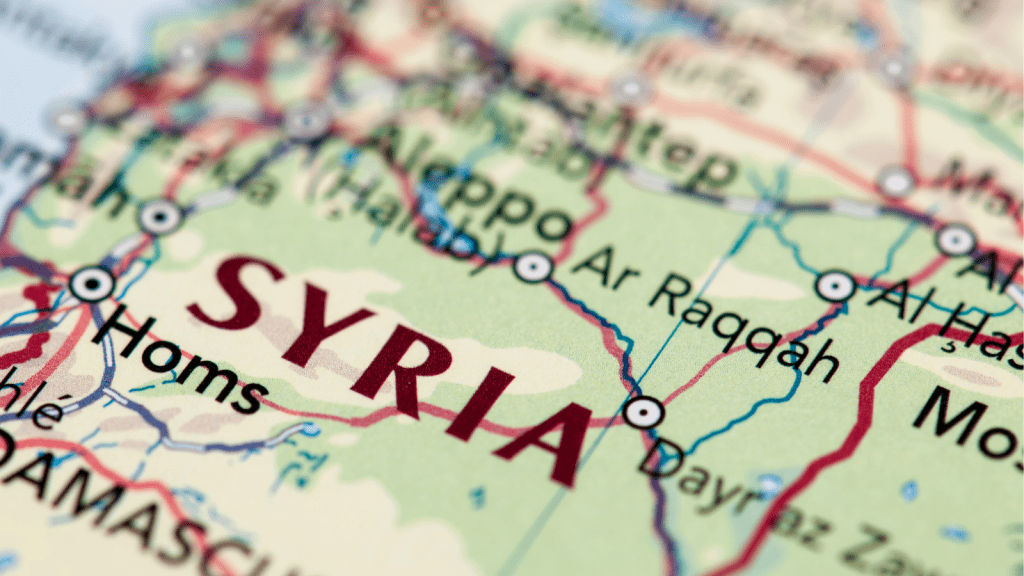
A few days ago the official Russian TV channel requested a half-hour special broadcast for me to speak about the rapprochement between Turkey and Syria. However, after five minutes, they interrupted our conversation saying, “We have to cut it short, we apologize, another urgent development has arisen.” I don’t know if a truly urgent development occurred or if they didn’t like what I was saying.
There are More Occupiers in Syria Before Turkey
When asked how I evaluated Assad’s precondition for the withdrawal of Turkish occupying forces from Syria, I responded:
“If I were in his position and had lost the territorial integrity of my country, I would certainly want the occupying forces to leave.”
Then I added, “But I would start with the U.S.-backed PKK/YPG, who control a third of the country and almost all the oil and natural gas fields. Then, I would remove Iran and Russia, who have created their own zones of influence and bases, overshadowing Damascus’s sovereignty. I would expel Israel from the Golan Heights, which it occupies and which contains water resources.”
After securing the border with Turkey, clearing out the terrorists, and repatriating the approximately one-fourth of the Syrian population who fled to Turkey as refugees, I would naturally ask Ankara to withdraw its forces.”
The host interrupted angrily, “Russia is not an occupying force,” and immediately said, “We apologize, but we have to end the broadcast early,” switching to another program.
A Major Multi-Player Game
The Syrian issue is very complex, involving many players.
USA: Sides with the Kurds, pursuing ISIS (which Trump said they created) with an international coalition.
Russia: Established land, air, and naval bases in Syria and is there to stay. Putin is the main power keeping Assad in place; otherwise, he would have been toppled long ago.
Israel: Wants a weak Syria. Strikes targets with fighter jets. If it deals with Hezbollah, Israel could penetrate further into Syria. In Ankara, there are concerns about the “Greater Israel” project on the promised lands.
Iran: Knows it’s next after Syria, hence its military presence in Syria aims to protect Assad and encourages historical reconciliation.
Arab League: Re-embraces Syria. Iraq, Qatar, and Saudi Arabia are constantly mediating with Turkey, conducting shuttle diplomacy. They do not want to lose Arab land.
China is also getting involved because natural resources of Iran, the Gulf, and the Eastern Mediterranean are critical for China. Besides China is one of the main arm exporters in the region.
There’s also the struggle of those who want a share in the reconstruction of the devastated country, which we haven’t accounted for.
Ankara’s Calculations on Syria
A Chinese general I met at a meeting in Beijing last year mentioned his recent visit to Damascus and border regions, asking, “What are you doing in Syria?” I replied, “It’s our neighbor. What are you doing thousands of kilometers away as a soldier in Syria?”
Ankara’s calculations on Syria never worked out. I hope the damages incurred so far will be partially remedied with a smart strategy from now on. In the last 13 years, while trying to establish a Sunni, friendly government in Damascus, Ankara has both allowed the PKK/YPG to settle along the Syrian border, seize oil fields, and establish de facto autonomy with a regular army, and created a virtual Peshawar in Idlib where Syrian armed opposition groups roamed freely. Moreover, Türkiye is hosting around 4 million Syrian refugees, creating a heavy social and economic burden for itself. Furthermore, relations with the West deteriorated, crises like the downing of the Russian jet and the massacre of Turkish soldiers by Russia occurred. Investors were scared off, tourism was crippled, Eastern Mediterranean interests could not be protected, and the front of adversaries grew and sharpened.
If Not Well Prepared, Summit Meetings Will Fail
Don’t think that an Erdoğan-Assad meeting in Moscow or Baghdad will make everything rosy. It’s not easy to untangle this knot. Alexander the Great cut the Gordian knot with a single sword stroke, but the Syrian knot seems to require at least a dozen sword strokes. Reaching a common agreement in the Syrian equation could take years. Therefore, sitting at the table without determining the negotiation grounds and what we will give and take won’t be beneficial. Undoubtedly, both sides need a solution. The rush to sit at the table should not be seen as a weakness. However, if a hastily arranged summit with poorly defined parameters ends in failure, it will only increase tensions and make the problem even more complex.

Mehmet Öğütçü
Chairman, Global Resources Partners, UK, and The London Energy Club. Former diplomat, prime minister adviser, IEA and OECD senior executive, director and independent board member at British Gas, Genel Energy, Invensys, Şişecam, Yaşar Holding companies. Chairman of the Middle East Institute, Washington DC, Advisory Board. He can be contacted at [email protected]
To cite this work: Mehmet Öğütçü, “Whose Hand is in Whose Pocket in Syria – Mehmet Öğütçü”, Panorama, Online, 23 August 2024. https://www.uikpanorama.com/blog/2024/08/22/syria-mo/
Copyright@UIKPanorama All on-line and print rights reserved. Opinions expressed in works published by the Panorama belongs to the authors alone unless otherwise stated, and do not imply endorsement by the IRCT, Global Academy, or the Editors/Editorial Board of Panorama.


